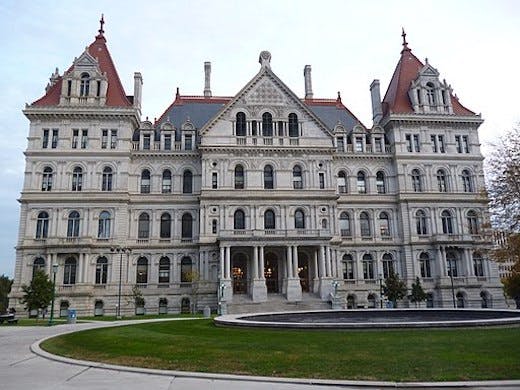Albany Moves Toward Weakening Mayoral Control of Schools
New legislation would extend mayoral control for two years but would moderate the mayor’s authority over the panel that approves all education-related contracts and policy items.

Mayor Adams would lose some of his grip on New York City’s public schools under the latest proposal from Albany, with the school board being increased to 23 from 15 members.
The chairman of the assembly’s education committee, Michael Benedetto, has put forward a bill that would extend mayoral control for two years but would moderate the mayor’s authority over the Panel for Education Policy, which approves all education-related contracts and policy items.
The bill would not only increase the size of the panel but would legislate whom the mayor could appoint and how appointees would serve.
Currently, the PEP consists of nine mayoral appointees, five appointees named by the city’s borough presidents, and one selected by presidents of local school advisory boards. The mayor’s control comes largely from this appointee majority, which usually guarantees his agenda will pass.
If the legislation is approved, the mayor would appoint 13 of the board’s 24 members, and there would be five appointees selected by the local advisory boards, one for each borough.
The new bill sets stricter regulations for whom the mayor could appoint to the panel. The mayor would need to appoint at least four public school parents to the PEP, and at least two appointees would be parents of children with special needs — one with an individualized learning program and one in a District 75 school for more severe learning disabilities. Additionally, one appointee would need to be a parent of a bilingual or ESL student.
PEP members would also have fixed terms going forward. Each member would serve a one-year term, and appointments could not be revoked if a member voted against the agenda of the mayor or whomever made the appointment. This was a recurring phenomenon during the de Blasio administration.
Finally, all members would need to complete a six-hour training on “the financial oversight, accountability, and fiduciary responsibilities of a city board member.”
The passage of this bill is likely tied to that of another bill currently floating around Albany that would set class size limits at 25. State Senator John Liu, the chairman of the New York City education committee, told the New York Post that the mayoral control initiative would be contingent on legislating smaller class sizes.
The new legislation is a blow to the Adams administration, which had hoped for a four-year extension of mayoral control without changes to the composition of the PEP.
“If you lose power of the PEP, you lose power of mayoral accountability,” the mayor said in March.
If any changes are to be made, they must come quickly, as time is running out on the legislative session and on the mayoral control mandate.

